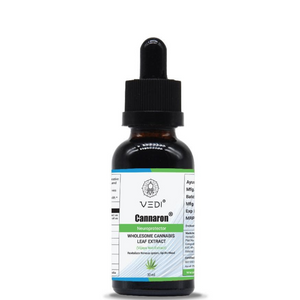Ayurvedic and Natural Remedies for Hepatitis Prevention & Treatment

Hepatitis is the term used to describe inflammation or swelling of the liver. It can be caused due to a viral infection or when the liver is exposed to harmful substances like alcohol.
Viral hepatitis is normally caused by the hepatitis viruses A, B, C, D, and E.
Viral Hepatitis is now a major health concern. It is being considered as dangerous as Tuberculosis or HIV. Data from the World Health Organisation (WHO) states that 40 million people in India are chronically infected with hepatitis B and 6-12 million people are chronically infected with hepatitis C.
So, how can one prevent or treat Hepatitis? Prevention is possible through vaccinations which is available for some types of Hepatitis. When it comes to treatment there is no standard treatment for this disease.
A major part of the treatment is through diet management and control. For some types of hepatitis, doctors prescribe medicines to improve liver functioning.
Understanding Hepatitis through Ayurveda
Science and research have helped us tread new paths. Similarly, it has also helped us understand many different strains of infection. For example, Hepatitis C was discovered as recently as 1989. However, Ayurveda is a very old science.
The original texts were written many years back when the only strain of Hepatitis known was Hepatitis A or Jaundice. Hence most ayurvedic texts only talk about treating this strain of Hepatitis.
As per Ayurveda, our body is made of three doshas Vatha, Pitha, and Kapha. A disruption to either of these doshas can lead to an ailment. Of the three doshas, Pitha is considered to be equivalent to bile secreted by the liver. An elevation of Pitha can lead to hepatic conditions.
Hence in Ayurveda, the principle of treatment is to reduce the Pitha dosha in the patients.
A large populace in our country prefers resorting to traditional medicine for treating Hepatitis A. A study was conducted in Kerala to understand which alternative system of medicines people preferred for treating Hepatitis A.
Out of the 348 respondents 73.26% took ayurvedic treatment. This is an example in case but there are many who prefer ayurvedic medicines to the allopathic course of medication.
What Are the Symptoms of Hepatitis?
Hepatitis symptoms can vary depending on the type and severity, but common signs include:
- Fatigue
- Jaundice (yellowing of the skin and eyes)
- Nausea
- Loss of appetite
- Dark urine
- Abdominal pain, especially in the upper right side
- Mild symptoms or no symptoms (possible in early stages)
Support Liver Health: The Hepatitis Diet
The best foods for hepatitis patients are those that support liver health. A liver-friendly diet includes foods rich in antioxidants, vitamins, and minerals such as leafy greens, fruits like berries, apples, and citrus, along with whole grains, nuts, and seeds.

Foods like garlic, turmeric, and ginger can also help promote liver function. It's important to avoid alcohol, sugary foods, and processed food to minimize strain on the liver.
What is the Strongest Natural Antiviral?
The strongest natural antiviral herbs include:
- Garlic, known for its powerful immune-boosting properties
- Echinacea, which supports immune function
- Ginger, which has antiviral and anti-inflammatory properties
- Turmeric, which has antiviral and anti-inflammatory properties
- Licorice Root, which has antiviral properties
Ayurvedic Treatment for Hepatitis
No treatment for any ailment through any system can be standardised. Listed below are herbs that are commonly used in balancing the Pitha dosha in our body. These should be taken only after proper consultation with an Ayurvedic practitioner.
Consult doctors at Vedi Herbals to helpyou determine your dosha type and recommend diet and medicines.
- Kutki: The scientific name for the herb is picrorhiza kurroa or it is also known as Katuka. Kutki not only detoxifies the liver and blood, it also strengthens the liver while enhancing cell growth and tissue regeneration.
- Giloy: Also known as Tinospora cordifolia or Guduchi. This herb is known for its liver protecting properties. Ayurveda strongly recommends this herb for treating jaundice. Guduchi capsules made by Vedi Herbals are 100% organic and helps to fight urinary and viral infections too.
- Nishoth: it is a plant from the morning glory family and is endemic to India. It is also known as Turpeth. This herb is not only used by Ayurveda but also in the Siddha and Unani system. The roots of this plant are very effective and used in treating many conditions including Jaundice.
- Vasaka: The scientific name for this plant is Justicia Adathoda. The leaves of this plant are used to cure jaundice. It acts by subsiding the inflammation of the liver due to hepatitis.
- Kakamachi: Kakamachi Solanum nigrum is a native Indian plant. It is also called as Bahuphala because it yields many fruits. The fruits of this plant protect against liver toxicity.
- Triphala: Triphala, as the name suggests, is a combination of three fruits Haritaki, Amalaki, and Bibhitaki. This powder basically balances the doshas in our body. Triphala Tablets by vedi herbals are 100% organic and works as a natural antioxidant and immunity booster.
- Indian Aloe Vera: This plant is rich in vitamins, minerals, and anti-oxidants. These essential nutrients help in restoring the liver.
- Bhumi Amalaki: This is an herb from the same family as Amalaki. Since the names are similar people often get confused but they are different herbs with different properties. Bhumi Amalaki detoxifies and nourishes the liver thus making it an effective herb in treating jaundice.
Conclusion
Diseases are man-made, we bring them upon us. But nature is abundant with remedies to treat most of our ailments. With the right diet and nature’s healing remedy in the form of plants and herbs ailments like Hepatitis can be easily prevented and controlled.
So, let us pledge to resort to the natural way of healing the ailments that we bring upon ourselves this World Hepatitis Day!
References
- About WHO South-East Asia Reports
- Role of Ayurveda treatment in the management of hepatitis
- Ayurvedic management of Hepatitis-B - A Case Study
- Ayurvedic Management of Hepatitis
- Implications of traditional medicine in the treatment of Hepatitis A in Kerala
FAQ
Question 1: Is hepatitis contagious?
Answer: Yes, certain types of hepatitis, like Hepatitis A, B, and C, are contagious. Hepatitis A typically spreads through contaminated food or water, while Hepatitis B and C are transmitted through blood, bodily fluids, or shared needles. Practicing good hygiene and taking precautions can help reduce the risk of transmission.
Question 2: How can I prevent hepatitis?
Answer: Prevention of hepatitis depends on the type. Vaccinations are available for Hepatitis A and B, which can significantly reduce your risk of infection. For Hepatitis C, avoiding risky behaviors like sharing food in the same utensils or sharing needles is key. A healthy lifestyle, regular handwashing, and safe sex practices can also help prevent certain forms of hepatitis.
Question 3: What is the role of diet in hepatitis treatment?
Answer: Diet plays a crucial role in managing hepatitis by supporting liver function. A balanced diet rich in fiber, antioxidants, and healthy fats helps reduce liver inflammation and promote healing. Avoiding processed food, alcohol, and excess fats can ease the burden on the liver. Consult a doctor or dietitian to create a liver-friendly meal plan.
Question 4: Can hepatitis be cured naturally?
Answer: While there is no single natural cure for hepatitis, Ayurveda and other natural treatments can help manage the condition and improve liver health. These include herbs, lifestyle changes, and a liver-friendly diet. Combining natural treatments with conventional medical care is important for the best results.
Question 5: Is fasting helpful for hepatitis treatment?
Answer: Fasting is generally not recommended for hepatitis treatment, as it may weaken the body and put additional stress on the liver. Instead, Ayurveda suggests a light, easily digestible diet with liver-supporting foods like moong dal, steamed vegetables, and herbal teas. Gentle detoxification through Panchakarma (Virechana) and herbs like Bhumyamalaki, Kutki, and Kalmegh can aid liver healing. Always consult a healthcare professional before making dietary changes.








